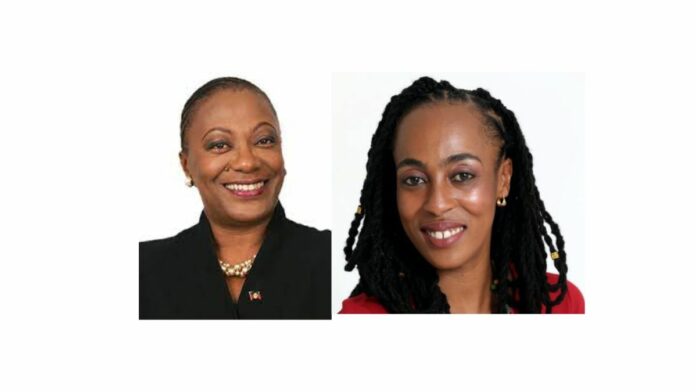By Makeida Antonio
Two female senators commented on recent statements by Prime Minister Gaston Browne about his intention to increase the number of women sitting in the Cabinet.
Last week, the Prime Minister gave his assurance to four female Antigua Barbuda Labour Party (ABLP) candidates – St John’s Rural East MP Maria Browne, St Mary’s South MP Samantha Marshall, St John’s Rural West candidate Senator Gail Christian and Barbuda candidate Senator Knacyntar Nedd-Charles, that Cabinet positions are secured once they are successful at the polls.
On yesterday’s Big Issues program, however, two female senators critiqued whether the motive behind such a strategic move was sincere or merely pandering to the women segment of the electorate.
United Progressive Senator Shawn Nicholas expressed that while she has been pushing for more women to become interested in local elected politics, she would hope that any sitting government would not use gender parity as an opportunity for tokenism.
“I am not one for tokenism so I am hoping it is not a situation where it sounds good and may be pandering to some of the voters, but really and truly that there is some thrust that should the Antigua Barbuda Labour Party win, that we will see women taking their rightful place in the Cabinet, and similarly if the United Progressive Party were to win the government, that we will see women taking their rightful places,” Senator Nicholas stated during the Big Issues discussion.
Barbados Independent Senator Kristina Hinds said she believed that the move by Prime Minister Browne is “superficial,” and while any effort to increase women in politics is useful, only four women out of 17 elected representatives would make it to the Cabinet.
“This is a very superficial move, and the reason why I say this is that there needs to be a broader commitment to improving the numbers of women in parliament, and what we see if we look at all of the tickets in Antigua and Barbuda – very few women are being placed in positions where they can be elected.”
Hinds added that in her view, political parties in Antigua and Barbuda lack strategies that would recruit and give the necessary support to women who want to feel comfortable participating in elected politics. She noted that instead, it would appear that female candidates are selected based on attractiveness to appeal to constituents which is “inadequate.”
Senator Nicholas then called for a cultural shift to re-educate and reduce misogyny since one of the biggest hindrances reported by female politicians is the lack of support by other women.
“We will find that the men will be the ones to push us, but when you look towards women to be there to stand up with you, whether you are on one side or the other, the things you hear about yourself you do not hear that about your male counterparts.”
“As women, we are still mothers, wives, girlfriends, housekeepers, custodians, we still have to look after elderly parents and we have all these things to do while being a politician. A male politician can be just that because they have sects in society that support them in what they do,” she argued.
She noted that although the country has not yet reached the mark of international averages and standards, the “small” and “strident” steps taken by Antigua must be commended.
“Any party that is thinking future cannot think of a future without women’s involvement going forward,” Senator Nicholas stated.

